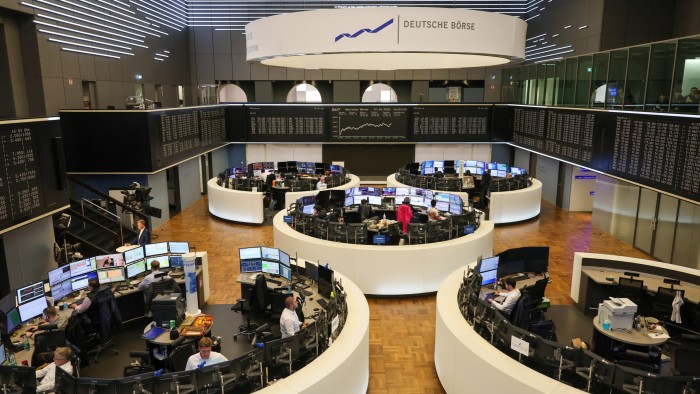Over the last ten years, private acquisitions have removed more than $1 trillion from European equity markets, according to a recent report that highlights the challenges facing these markets amid a boom in private capital.
This trend is seen as a “much bigger threat” to European capital markets than companies leaving to list in the US, as noted by a report from HSBC Global Research and the think-tank New Financial.
The analysis found that 1,013 publicly traded European companies were acquired by private equity or unlisted firms in the past decade, in stark contrast to just 130 that opted for the US stock market.
“The public markets are struggling to effectively value companies on this scale, which is concerning,” stated Ian Stuart, a senior executive at HSBC. The report indicates a “clear shift” away from public markets towards private ones.
In recent years, European stock markets have significantly lagged behind Wall Street’s rising indices, largely influenced by a rally in Big Tech stocks. This situation has raised alarms among policymakers about the health of capital markets in Europe, prompting firms to look for listings in the US while making them more susceptible to buyouts as their stock prices underperform.
For instance, last year, the Abu Dhabi National Oil Company privatized the German materials firm Covestro for €14.7 billion, and KKR bought Telecom Italia’s network operator, NetCo, for €22 billion. In 2023, Blackstone and Permira acquired Norway-based Adevinta for $13 billion.
The impact of private capital has been particularly pronounced in London, which has seen companies like Morrisons, Worldpay, and Hargreaves Lansdown sold to private buyers in recent years.
Fund managers express concern that market volatility, particularly since Donald Trump announced his “reciprocal” tariffs, could exacerbate this trend by making publicly listed companies cheaper and more appealing for private takeovers, especially as buyout firms hold substantial cash reserves ready to be invested.
Apostolos Thomadakis, head of research at the European Capital Markets Institute, warned that private acquisitions could severely diminish public investment in Europe, worsening the already limited participation in its markets.
“As more companies exit public markets, the liquidity of European markets will decline,” Thomadakis remarked, explaining that this lack of liquidity hampers financing for start-ups, leading them to leave Europe.
He cautioned that a shift to private capital could lead to “less transparency” and weaken “price discovery,” posing a risk that Europe may lose control over strategically important companies to non-European private entities.
Meanwhile, private equity and debt markets have expanded rapidly, diminishing the necessity for firms to pursue public listings or issue debt.
Goldman Sachs CEO David Solomon noted that companies can now “secure capital privately, at scale,” suggesting that the incentives to go public are “being pushed out.”
Despite a slight decrease in the perceived Wall Street advantage during this month’s market sell-off, European stocks remain relatively inexpensive compared to global counterparts, with the Stoxx Europe 600’s forward price-to-earnings ratio at 14 times compared to 20 for the US S&P 500.

The hope of achieving higher valuations and better liquidity has driven companies to leave European indices for the US, with the UK market experiencing its largest outflow since the financial crisis last year.
The HSBC/New Financial report revealed that among the 130 companies that relocated to the US, which includes various types of transactions like IPOs and primary listing switches, 70% were trading below their initial listing prices.
This follows an analysis by the Financial Times in March that found that half of the companies that added a US listing did not see an increase in valuation, although most enjoyed improved liquidity of their shares.
The authors of the report urged UK and EU policymakers to implement reforms that would enhance the appeal of public markets.
Last year, the UK announced a significant overhaul of its listing regulations, while the EU is working to establish a capital markets union, following recommendations from former European Central Bank head Mario Draghi aimed at boosting the region’s competitiveness.
Additionally, investors are cautious that recent market volatility triggered by Trump’s tariff actions may spur further private acquisitions.
Mair predicted that there could be an increase in private equity buyouts of public companies, especially as some firms have “refined” their acquisition strategies.
The lack of IPO activity poses significant risks for equity markets and all equity holders,” he cautioned.


